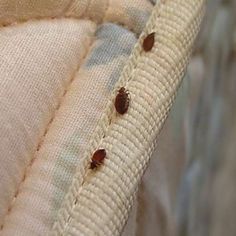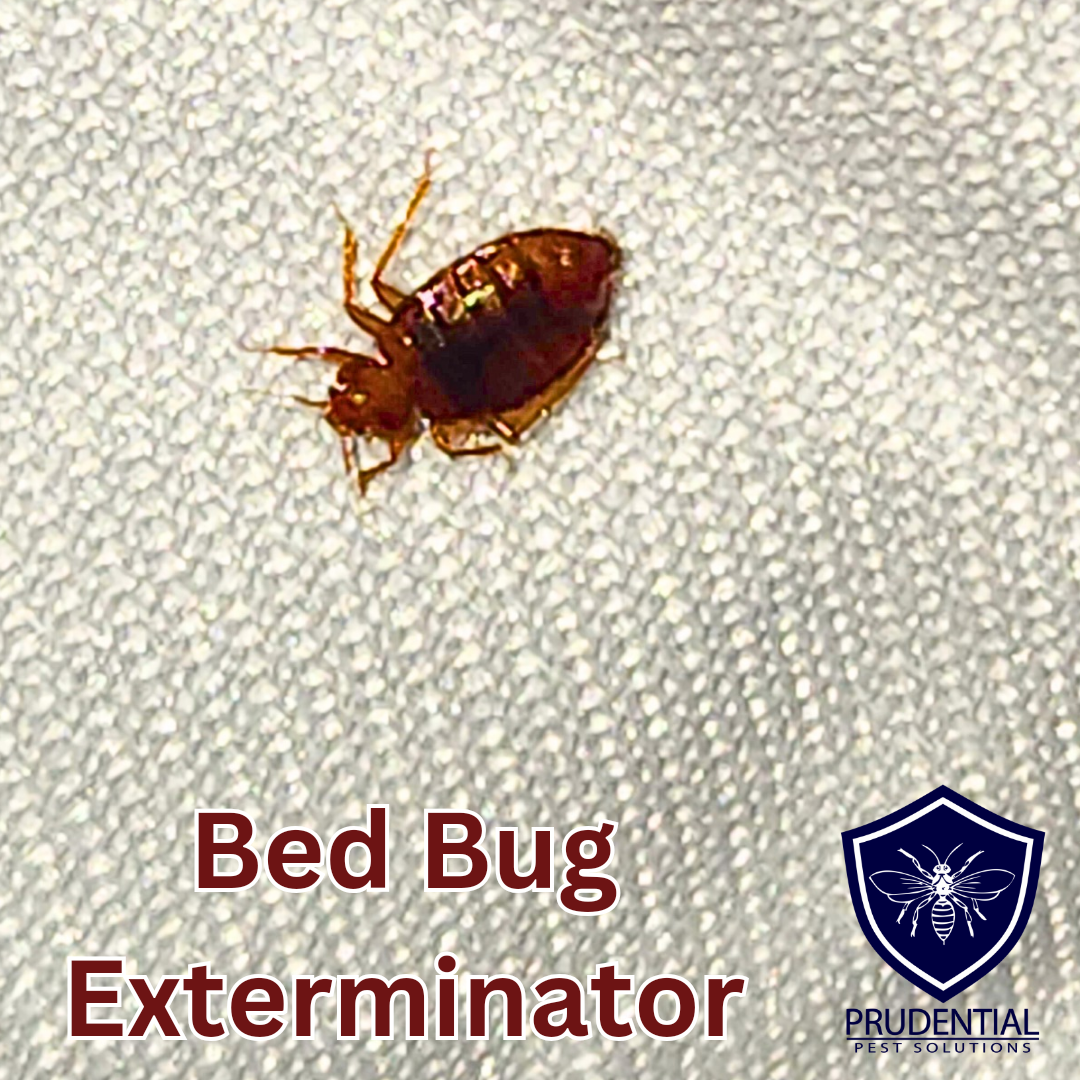Comprehensive Bed Bug Heat Treatment Services for Complete Elimination
Comprehensive Bed Bug Heat Treatment Services for Complete Elimination
Blog Article
Obtain Educated Regarding the Kinds Of Pest Control Methods and Their Advantages for Home Owners
Comprehending the different insect control methods readily available to home owners is necessary for efficient insect management. From chemical and organic strategies to mechanical and social techniques, each approach provides unique advantages that can dramatically affect both health and ecological safety and security. House owners who are well-informed can make strategic selections that not only address insect issues yet likewise improve the general quality of their living environment. As we discover these methods further, it comes to be clear that the decision-making procedure includes greater than just immediate outcomes; it discuss lasting sustainability and wellness. What factors should influence these important choices?
Chemical Parasite Control Methods
Chemical bug control approaches are a vital part of incorporated pest administration approaches for homeowners seeking efficient remedies to pest problems. These methods involve the application of chemical compounds created to remove or deter insects that endanger personal effects, health and wellness, and comfort. Common chemicals used include insecticides, herbicides, rodenticides, and fungicides, each tailored to target particular insects.
The main advantage of chemical insect control is its fast efficiency; lots of formulas supply instant results, decreasing pest populations considerably quickly. Additionally, advancements in chemical formulations have brought about items that are a lot more ecologically friendly and have lower toxicity degrees for non-target microorganisms when applied correctly.

Organic Bug Control Strategies
Natural bug control approaches have acquired importance as home owners seek much safer and a lot more lasting choices to conventional chemical techniques. Organic pest control techniques use all-natural killers, bloodsuckers, or virus to manage pest populations successfully. This technique is not just eco-friendly but likewise lessens the threat of harm to non-target varieties, including useful pests and wildlife.
Among the most typical organic control techniques entails introducing natural predators into the setting. For instance, ladybugs can be made use of to manage aphid populaces, while nematodes target soil-dwelling insects like grubs. In addition, parasitoids-- microorganisms that survive on or within a host-- can be employed to regulate certain parasite species by laying eggs inside them, eventually bring about their death.
One more method is making use of biopesticides, which are originated from all-natural products such as germs, plants, or minerals (bed bug exterminator). These items can efficiently target parasites while posing marginal risk to pets and people. Generally, organic parasite control methods offer property owners with a reliable ways of pest monitoring that lines up with eco-friendly concepts, promoting a much healthier living environment while lowering reliance on artificial chemicals
Mechanical Insect Control Strategies
Mechanical bug control strategies incorporate a variety of techniques that physically stop or eliminate bugs without using chemicals. These methods are specifically valuable for property owners looking for eco-friendly options while making sure the safety and security of their living areas.
One usual method is using obstacles, such as displays, webs, and traps, which protect against pests from going into homes or specific areas. Setting up home window screens can efficiently maintain pests out, while using physical barriers around yards can deter larger parasites like bunnies or deer. In addition, mechanical traps made for rats can capture go to my site and eliminate these parasites without the need for poisonous compounds.
One more efficient technique involves using mops and vacuums to get rid of insects straight from surfaces. Regular cleansing and upkeep can considerably minimize bug populations by getting rid of food sources and hiding spots. Furthermore, employing tools like ultrasonic parasite repellents can hinder numerous bugs with noise waves that are unpleasant to them but faint to human beings.
Social Insect Control Practices
Cultural parasite control techniques focus on modifying the setting and monitoring methods to create problems that are less for read this article pest problems. These methods are fundamental in keeping a balanced community and reducing the dependence on chemical interventions. By modifying farming practices, home owners can successfully deter parasites while promoting plant health.
One typical method includes plant rotation, which interferes with the life cycles of pests by altering the sorts of plants expanded in a specific location (bed bug exterminator). This not only lessens pest populaces however additionally enhances dirt health and wellness. In addition, intercropping-- planting varied crops in distance-- can confuse insects and lower their capability to situate their preferred host plants
Water administration is another important aspect of cultural techniques. Proper irrigation methods can prevent standing water, which serves as a reproduction ground for insects and other insects. Maintaining tidiness in and around the home, such as regularly eliminating particles and food waste, can dramatically reduce insect tourist attraction.
Integrating these social techniques into a comprehensive insect administration method permits home owners to develop a setting that normally deters pests, thereby enhancing the effectiveness of other control methods while promoting sustainable horticulture and landscape design.

Integrated Insect Management Approaches
Integrated Parasite Administration (IPM) represents a holistic strategy that integrates various approaches to efficiently manage parasite populations while minimizing ecological effect. This technique integrates organic, social, physical, and chemical practices to attain sustainable parasite control. By examining pest populations and their all-natural enemies, IPM highlights monitoring and determining pests prior to implementing control actions.
One of the core concepts of IPM is the use of limits, which develop the level of parasite activity that calls for intervention. This makes sure that treatments are used just when required, lowering the reliance on chemical pesticides. Biological control approaches, such as introducing all-natural killers or parasites, job in conjunction with social techniques like crop rotation and environment manipulation to interrupt pest life process.
Furthermore, IPM motivates the usage of least-toxic chemical options when treatment is necessary, prioritizing items that posture minimal danger to non-target microorganisms and the setting. For property owners, embracing IPM comes close to not just enhances the efficacy of insect monitoring yet also promotes a healthier living atmosphere, promoting biodiversity and lowering chemical direct exposure. Ultimately, IPM empowers property owners to make educated decisions that stabilize bug control with eco-friendly duty.
Conclusion
In verdict, understanding the various parasite control approaches termite inspection companies equips house owners to make educated decisions regarding pest monitoring. Each strategy-- chemical, organic, mechanical, cultural, and incorporated bug administration-- provides distinct advantages that accommodate different demands and preferences. By selecting ideal methods, property owners can effectively take care of insect populations while decreasing health and wellness risks and ecological impacts. This enlightened technique contributes to a much healthier living atmosphere, advertising general well-being for family members and animals alike.
Understanding the numerous pest control techniques available to property owners is essential for efficient parasite administration.Chemical bug control methods are a critical element of incorporated parasite management methods for homeowners seeking efficient remedies to pest infestations. Generally, organic insect control methods give property owners with an effective ways of parasite management that aligns with environmental concepts, advertising a much healthier living setting while reducing reliance on synthetic chemicals.
Social parasite control techniques concentrate on changing the setting and management techniques to create conditions that are less helpful to pest infestations.In conclusion, understanding the various pest control methods empowers homeowners to make informed decisions regarding pest management.
Report this page